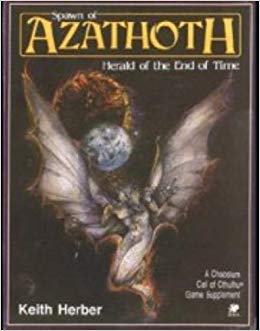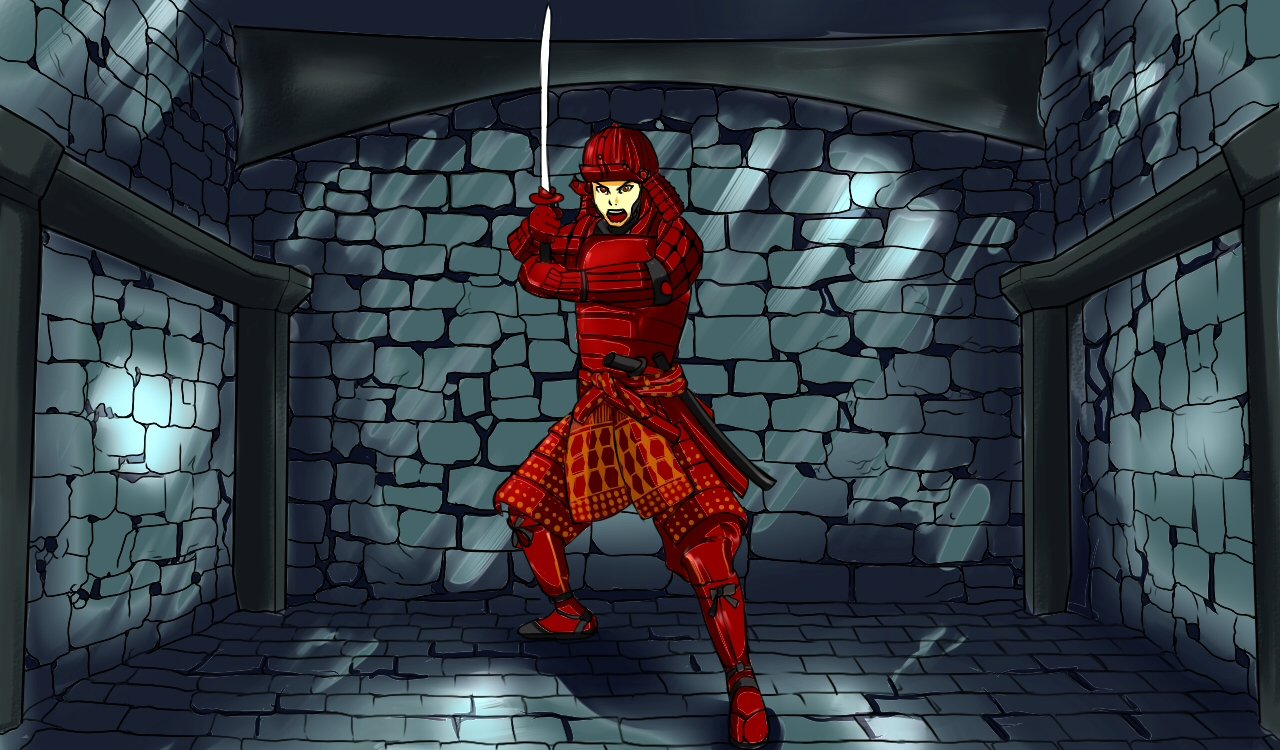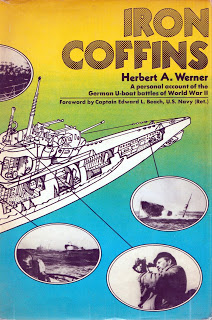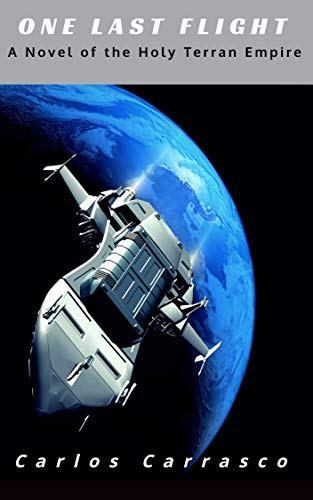Sensor Sweep: August Derleth, Mack Bolan, Fandom History, Bill Crider Prize
Monday , 4, March 2019 Sensor Sweep 4 CommentsAuthors (DMR Books): One thing that A Look Behind the Derleth Mythos really clarified for me was just how much impact Derleth and his publishing  business, Arkham House, had on the weird fiction scene from 1939 to 1971. Arkham House didn’t just publish HPL in fine hardcovers and keep his name and works in front of the public. Derleth, in the ’40s and ’50s, was easily the most high-profile and well-respected author to emerge from the Weird Tales stable.
business, Arkham House, had on the weird fiction scene from 1939 to 1971. Arkham House didn’t just publish HPL in fine hardcovers and keep his name and works in front of the public. Derleth, in the ’40s and ’50s, was easily the most high-profile and well-respected author to emerge from the Weird Tales stable.
Fiction (My Drops of Ink): 50 Years Ago, Don Pendleton envisioned a fictional character that would soon become a literary bestseller and a phenomenon through which the new action/adventure genre emerged. Mack Bolan, a professional soldier, highly trained and skilled in the use of military tactics and weapons makes a life-altering decision after the tragic death of his family—his war is at home, not in the bloody fields of Vietnam. Mack Bolan takes on a one-man war against the evils and corruption of the Mafia.
through which the new action/adventure genre emerged. Mack Bolan, a professional soldier, highly trained and skilled in the use of military tactics and weapons makes a life-altering decision after the tragic death of his family—his war is at home, not in the bloody fields of Vietnam. Mack Bolan takes on a one-man war against the evils and corruption of the Mafia.
RPG (Euro Gamer): Developer Red Hook Studios has announced that it’s working on a sequel to its brilliant but brutal Lovecraft-inspired RPG, Darkest Dungeon.
The original game released in 2016, and tasked players with exploring numerous trap-infested environs, seeking out riches, and battling – in time-honoured turn-based fashion – a relentless procession of cosmic horrors. Each encounter with the unknown would send adventurers in a party to the brink of madness, eventually lumbering them with (usually) negative quirks and making future excursions that much harder.
Fandom (Between Wasteland and Sky): Welcome to the third part of this incredible journey through Fandom’s history. I did not expect quite so much  material to come from this book when I first found the thing packed away on a shelf in that store, but here we are entering part 3 of 5.
material to come from this book when I first found the thing packed away on a shelf in that store, but here we are entering part 3 of 5.
It turns out Star Wars releasing the same year as this book in 1977 really was a watershed moment. That one movie destroyed a number of delusions Fandom had about their genre as many of the claims in this work vanished overnight.
Fandom (Between Wasteland and Sky): For the fourth part of our series we touch on two of the biggest tropes in science fiction and fantasy, and we deal with what brought them about. Of course because we are being guided by Mr. Lundwell we have to be reminded at just what a great and marvelous time we are (were) living in.
The 20th century was a hot mess of good intentions and brazen attempts to seize the new throne in the expanding wild west of civilization. Whereas it started with wars, sparks of ideas, and hope, it ended in wars, decadence, and pure nihilism. In every respect that counted it was an utter failure.
Fiction (Pulp Archivist): Previously, I discussed Asimov’s three kinds of science fiction: gadget, adventure, and social.And while this trio better describes the wild and wooly mess of science fiction than the binary set of hard and soft science fiction, new sub-genres have cropped up that don’t quite match the categories Asimov created. Now, Asimov’s categories are descriptions based on function, so many hybrids exist. But there still remains one category outside this spectrum.
Fiction (Pulprev): It is fashionable in modern SFF to denigrate religion as oppressive and outdated superstition. Priests are corrupt hypocrites, gods are  dead or evil or both, religious doctrine is a lie — and the worst offender is always Christianity in fantasy dress. Science fiction goes one step further, portraying technologically advanced societies that have outgrown religion — including Christianity. Alternatively, religion is treated as window dressing, or as an afterthought plastered on to the setting.
dead or evil or both, religious doctrine is a lie — and the worst offender is always Christianity in fantasy dress. Science fiction goes one step further, portraying technologically advanced societies that have outgrown religion — including Christianity. Alternatively, religion is treated as window dressing, or as an afterthought plastered on to the setting.
Writing Contest (Bouchercon): Debuting at the 50th Anniversary of Bouchercon, Carol Puckett and the 2019 Bouchercon Dallas committee launched the Bill Crider Prize for Short Fiction to celebrate this treasured literary form, both the short story and the widely-admired mystery author and reviewer, Bill Crider. Designed to encourage writers from all over the world, these distinguished prizes award stories with fascinating characters and twisty plots, all in the mystery genre.
Fiction (Pattinase): I think a second subtitle might be “with Alpha Males.” Because the writers interviewed here are certainly that. All were popular when the book was written in 2009 and remain at the top of their profession 10 years on. The writers include: Crumley, Leonard, Woodrell, MacLeod, Ellroy, Collins, Cannell, Holden, Dexter, White, Russell, Friedman, Sallis, Bruen. I bet you didn’t have much difficulty in identifying any of them. Leonard, McLeod and Crumley are gone, I hope all the rest remain.
the book was written in 2009 and remain at the top of their profession 10 years on. The writers include: Crumley, Leonard, Woodrell, MacLeod, Ellroy, Collins, Cannell, Holden, Dexter, White, Russell, Friedman, Sallis, Bruen. I bet you didn’t have much difficulty in identifying any of them. Leonard, McLeod and Crumley are gone, I hope all the rest remain.
Military History (Tom McNulty): My father bought this book in 1969, and this is one of the rare non-fiction books that he read. The Mickey Spillane novels were the only fiction that he read, but when it came to non-fiction he read about WWII or Popular Mechanicsmagazine. He wasn’t alone. Iron Coffins was the talk of the neighborhood when it was published, and the book’s reputation is secure all of these decades later. This book is often mistaken as the inspiration for the 1981 film, Das Boot, directed by Wolfgang Petersen, but that excellent film was based on the novel of the same name by Lothar-Gunther Buchheim.
Gaming (Brain leakage): Case in point: I’m a big fan of the pulpy, Weird Tales type fantasy that makes up most of Gary Gygax’s famous Appendix N. As  such, my campaign’s cosmology is ripped straight from Michael Moorcock. My game’s elves owe more to his doomed Melnibonéans than to Tolkien’s ethereal forest dwellers. I like Vancian Magic. One of my players is currently under a curse inspired by an unfinished Robert E. Howard fragment.
such, my campaign’s cosmology is ripped straight from Michael Moorcock. My game’s elves owe more to his doomed Melnibonéans than to Tolkien’s ethereal forest dwellers. I like Vancian Magic. One of my players is currently under a curse inspired by an unfinished Robert E. Howard fragment.
RPG (Matthew J. Constantine): Like most pre-published Chaosium campaigns for Call of Cthulhu, this one lacks focus. There’s really no reason to deal with Mi-Go, Tcho-Tcho, ancient spiders, Hastur worshipers, and Ghouls, not to mention a ghost and some Sasquatch…Sasquatch?! in one, fairly short campaign. I’m not a fan of putting traditional monsters (vampires, werewolves…Sasquatch…into Call of Cthulhu either, but that’s a discussion for another day). It’s a bit of what YouTube reviewer Kurt Wiegel refers to as a ‘mythos hoedown.’
Fiction (Superversive): There is a prejudice in modern SF so nearly ubiquitous that it can be considered a trope. I’m talking about the assumption that the more technologically advanced a civilization becomes, the less religious it will be. While this prejudice is normally implicit in a lot of science fiction, the assumption was stated explicitly not too long ago in the sixth episode of The Orville’s first season, The Krill.
Art (Aleteia): The books of J.R.R. Tolkien are full of surprises. An exhibit in New York about Tolkien’s artwork has some nice surprises as well, and one of the best has to do with his fatherhood.
Long before John Ronald Reuel Tolkien (1892-1973) published his Lord of the Rings trilogy, he was honing his craft as a storyteller with his four children.
Interview (R. D. Meyer Writes): I’ve dialed back a lot of stuff in order to just focus on fiction writing lately. That means less journalistic writing, because this is what I’ve set out to do—change culture, and now I’m finally in a position with a platform to where I can do it. It doesn’t get my name out there as  often (cuz it’s usually only on releases and novels take time), but I want 2019 to be a body of work which blows others out of the water in just how much great fiction I can produce.
often (cuz it’s usually only on releases and novels take time), but I want 2019 to be a body of work which blows others out of the water in just how much great fiction I can produce.
Indie Business (Kairos): The solution is very simple. Just add a storefront to your web site. And learn to code a custom version of that site so you don’t have to deal with Blogger or WordPress. And build your own distribution network to get your books to retailers, which you’ll also need to build. You’ll also need to build your own payment processor, and you should probably found your own international bank while you’re at it so you can issue your own credit cards. Oh, you’ll also need your own domain registrar because the existing ones can just yank that puppy if they don’t like the cut of your jib.
Thanks for the shout out!
The fourth link goes to the Eurogamer article excerpted in the third link rather than the article it’s supposed to go to rather on Between the Wasteland and the Sky. Here’s the correct link: https://wastelandandsky.blogspot.com/2019/02/fandom-illustrative-history-part-iii.html
Interesting collection of articles, I look forward to reading them. Thank you for putting them all in one spot.
JD Cowan is on a roll.
Thanks for the shoutout!